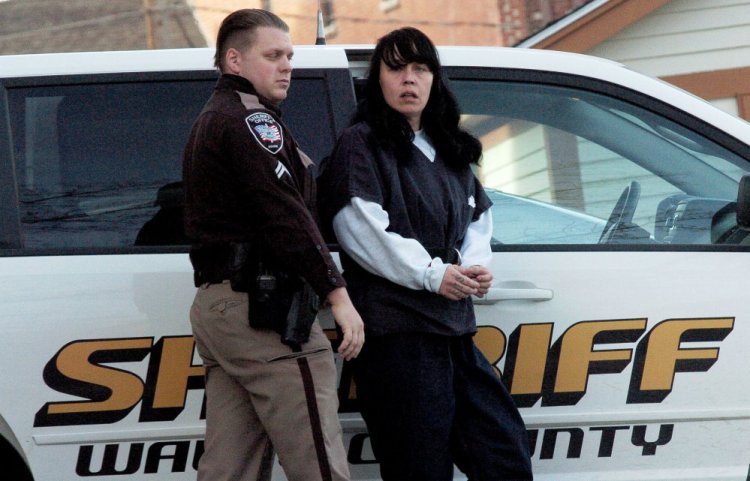A motion to admit polygraph test results as evidence in the manslaughter trial of Miranda Hopkins was denied Friday by a judge in Waldo County Superior Court in Belfast.
The lawyer for Amanda Hopkins filed a motion in August to have the results of a polygraph test allowed as evidence at her trial showing that Hopkins did not kill her 7-week-old son at their home in Troy in January.
Laura Shaw, the attorney for Hopkins, filed a motion to admit the test and its results, as they “overwhelmingly demonstrated” that Hopkins was innocent, according to the motion filed in Waldo County Superior Court. Shaw said the examination, conducted by licensed polygraph administrator Mark Teceno, indicated there was more than a 99 percent certainty that Hopkins was telling the truth.
Lisa Marchese, head of the criminal division at the Attorney General’s office, said by phone Friday that the state objects to the introduction of the polygraph test results during Hopkins’ trial.
“There is overwhelming case law in support of the state’s position opposing the defendant’s motion,” Marchese said.
Hopkins called 911 in January from her trailer home, saying her infant son was unresponsive. The infant was pronounced dead at the scene. The cause of the baby’s death is listed as blunt force injuries that included cuts and bruises on the head and skull, rib fractures, and bleeding on the surface of the brain.
Hopkins originally was charged with knowing or depraved indifference murder, punishable by 25 years to life in prison. She was indicted by a Waldo County grand jury in February on a lesser charge of manslaughter.
Manslaughter is a class A felony, as is a charge of murder, but it carries a lesser penalty. It’s punishable by a period of time in prison not to exceed 30 years. An indictment is not a finding of guilt, but is a determination by the grand jury that there’s enough evidence in a case to proceed with trial.
Hopkins allegedly told authorities she woke up and found her baby cold, white and “beat to hell.” The infant was pronounced dead at the scene. Hopkins lived with Jaxson and two other sons, ages 6 and 8, who both have autism, she told police. But Hopkins allegedly also told police she must have “blacked out” and was “so drunk that she did not remember,” saying she had drunk whiskey and ingested the antihistamine drug Benadryl, according to a police affidavit filed with the court. She was arrested Jan. 13, the day after her son died.
Hopkins contended in court documents that one or both of her other sons might have killed their infant brother, possibly by crushing the child while rolling over in bed.
After the polygraph test was administered, Teceno’s results concluded that the data collected from Hopkins “was not likely collected from a person being deceptive.”
According to Shaw’s motion, Hopkins willingly submitted to the examination and stated she did not inflict the injuries on her son.
The filing concedes that the Law Court generally has stated polygraph examinations are not sufficiently reliable to allow the results or a defendant’s willingness or unwillingness to take the test as evidence.
But Shaw states that any decision to exclude polygraph evidence from admission at trial is not binding in this court for a number of reasons.
The motion states the case that initially decided this question dates to 1954 and are not the same standards used by the law court today. The motion also states that in those early cases, polygraph tests had not been developed enough so that the result could be considered competent evidence.
Shaw’s motion said the results should be admitted at least for the limited purpose of rebutting arguments made by the state and corroborate the defendant’s testimony. Shaw writes that Hopkins repeatedly has denied harming her son in any way and denied the charge during the polygraph, so her denials should be admitted to corroborate her prior statements.
The court document also says that the state’s initial complaint and expected theory in the case centers on Hopkins’ credibility. “We are shocked that the state is not only continuing to prosecute a woman who has proven her innocence, but is asking that this evidence of her innocence be hidden from the jury,” Shaw said in an email in August. “Because the state is choosing to ignore evidence of Miranda’s innocence, we have been forced to file this motion to ask the judge to admit the evidence at trial.”
Jury selection in Hopkin’s manslaughter trial is set to begin Thursday. Her trial is scheduled to begin Monday, Oct. 30
Send questions/comments to the editors.



